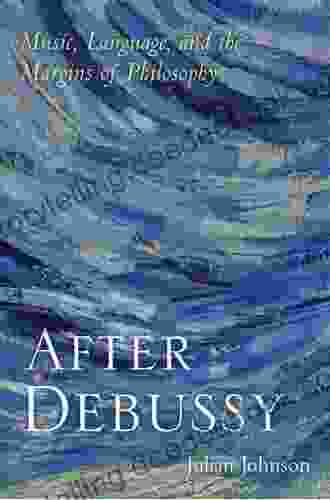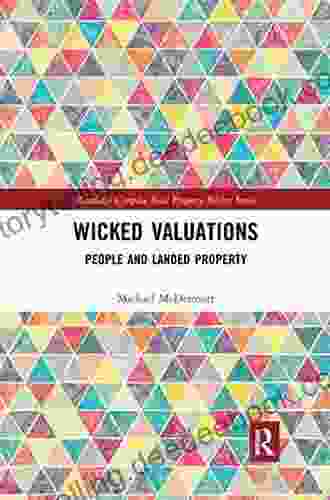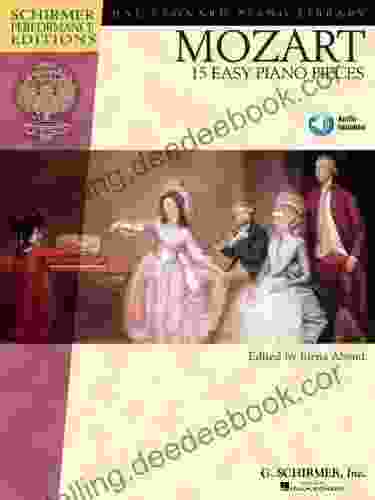Music, Language, and the Margins of Philosophy

Music and language are both forms of communication, but they differ in important ways. Music is more immediate and expressive, while language is more precise and logical. This difference makes music a more powerful tool for exploring the margins of philosophy.
4.6 out of 5
| Language | : | English |
| File size | : | 25387 KB |
| Text-to-Speech | : | Enabled |
| Screen Reader | : | Supported |
| Enhanced typesetting | : | Enabled |
| Print length | : | 393 pages |
| Lending | : | Enabled |
| Item Weight | : | 7 ounces |
| Dimensions | : | 5.83 x 0.31 x 8.27 inches |
Music can express ideas that are difficult to put into words. For example, music can convey emotions such as joy, sadness, anger, and love. It can also create a sense of atmosphere or evoke a particular memory. Language, on the other hand, is more limited in its ability to express emotions. Words can describe emotions, but they cannot fully capture the experience of an emotion.
Music can also evoke emotions that are beyond the reach of language. For example, music can create a sense of awe or wonder. It can also transport listeners to another world or time. Language is not capable of creating these same experiences.
The difference between music and language makes music a more powerful tool for exploring the margins of philosophy. Music can express ideas and evoke emotions that are beyond the reach of language. This makes music a valuable tool for philosophers who are interested in exploring the limits of human understanding.
The Margins of Philosophy
The margins of philosophy are the areas of inquiry that lie outside the traditional boundaries of the discipline. These areas include topics such as the nature of consciousness, the existence of God, and the meaning of life. Traditional philosophy has often struggled to answer these questions, but music may provide a new way of approaching them.
Music can help us to understand the nature of consciousness by providing a direct experience of it. When we listen to music, we are not simply hearing a series of sounds. We are also experiencing a state of consciousness that is unique to music. This state of consciousness is characterized by a heightened sense of awareness and a deep sense of connection to the world around us.
Music can also help us to understand the existence of God. Music can provide a direct experience of the divine. When we listen to music, we are not simply hearing a series of sounds. We are also experiencing a connection to something greater than ourselves. This connection can lead us to a sense of awe and wonder that is unlike anything else we experience in life.
Finally, music can help us to find meaning in life. Music can provide a sense of purpose and direction. When we listen to music, we are not simply hearing a series of sounds. We are also experiencing a connection to the world around us. This connection can lead us to a sense of belonging and a sense of purpose.
Music is a powerful tool for exploring the margins of philosophy. It can express ideas and evoke emotions that are beyond the reach of language. This makes music a valuable tool for philosophers who are interested in exploring the limits of human understanding.
4.6 out of 5
| Language | : | English |
| File size | : | 25387 KB |
| Text-to-Speech | : | Enabled |
| Screen Reader | : | Supported |
| Enhanced typesetting | : | Enabled |
| Print length | : | 393 pages |
| Lending | : | Enabled |
| Item Weight | : | 7 ounces |
| Dimensions | : | 5.83 x 0.31 x 8.27 inches |
Do you want to contribute by writing guest posts on this blog?
Please contact us and send us a resume of previous articles that you have written.
 Book
Book Chapter
Chapter Text
Text Story
Story Library
Library E-book
E-book Newspaper
Newspaper Sentence
Sentence Bookmark
Bookmark Shelf
Shelf Glossary
Glossary Preface
Preface Footnote
Footnote Manuscript
Manuscript Scroll
Scroll Codex
Codex Classics
Classics Biography
Biography Autobiography
Autobiography Memoir
Memoir Dictionary
Dictionary Thesaurus
Thesaurus Resolution
Resolution Librarian
Librarian Catalog
Catalog Borrowing
Borrowing Archives
Archives Scholarly
Scholarly Academic
Academic Journals
Journals Special Collections
Special Collections Interlibrary
Interlibrary Literacy
Literacy Study Group
Study Group Dissertation
Dissertation Storytelling
Storytelling Reading List
Reading List Book Club
Book Club Theory
Theory Textbooks
Textbooks Michelle R Callahan Ph D
Michelle R Callahan Ph D J Saman
J Saman 2007th Edition Kindle Edition
2007th Edition Kindle Edition Pamela Binnings Ewen
Pamela Binnings Ewen Alan Wolk
Alan Wolk Andrew Hugill
Andrew Hugill Larry E Heck
Larry E Heck David A Sherris
David A Sherris Jen Calonita
Jen Calonita Samantha Shannon
Samantha Shannon Leeza Hernandez
Leeza Hernandez Bernard Newman
Bernard Newman Timothy Rice
Timothy Rice Allen Eskens
Allen Eskens Jacey Boggs
Jacey Boggs Markus Jakobsson
Markus Jakobsson Michelle E Martin
Michelle E Martin Stan Kirby
Stan Kirby Gordon Grob
Gordon Grob Merete Kruuse
Merete Kruuse
Light bulbAdvertise smarter! Our strategic ad space ensures maximum exposure. Reserve your spot today!

 Joshua ReedFor The Suppleness And Stamina Of The Fingers And The Purity Of Intonation:...
Joshua ReedFor The Suppleness And Stamina Of The Fingers And The Purity Of Intonation:... Benjamin StoneFollow ·11.6k
Benjamin StoneFollow ·11.6k DeShawn PowellFollow ·14.9k
DeShawn PowellFollow ·14.9k Cristian CoxFollow ·17.5k
Cristian CoxFollow ·17.5k Holden BellFollow ·17.2k
Holden BellFollow ·17.2k Michael ChabonFollow ·6.6k
Michael ChabonFollow ·6.6k Shawn ReedFollow ·2.8k
Shawn ReedFollow ·2.8k Michael CrichtonFollow ·3.4k
Michael CrichtonFollow ·3.4k Preston SimmonsFollow ·13.7k
Preston SimmonsFollow ·13.7k
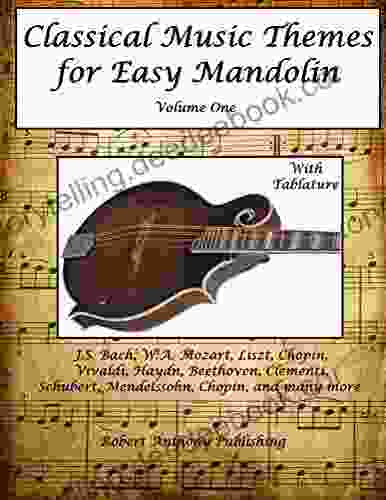
 Howard Blair
Howard BlairClassical Music Themes for Easy Mandolin, Volume One
Classical Music Themes for Easy Mandolin,...

 Paulo Coelho
Paulo CoelhoThe Heretic Tomb: Unraveling the Mysteries of a Lost...
Synopsis In Simon Rose's captivating debut...

 Rodney Parker
Rodney ParkerThe Passionate Friends Annotated Wells: A Deeper...
Unveiling the...
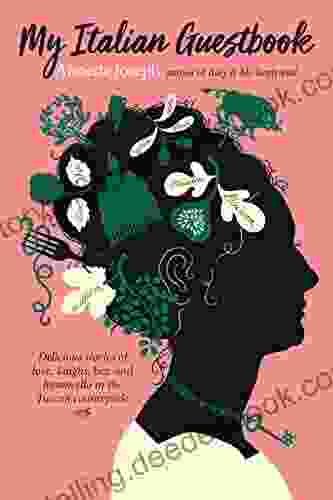
 Ed Cooper
Ed CooperDelicious Stories of Love, Laughs, Lies, and Limoncello...
In the heart of...

 Elmer Powell
Elmer PowellHal Leonard Piano For Kids Songbook: Unleashing the...
Music holds immense...
4.6 out of 5
| Language | : | English |
| File size | : | 25387 KB |
| Text-to-Speech | : | Enabled |
| Screen Reader | : | Supported |
| Enhanced typesetting | : | Enabled |
| Print length | : | 393 pages |
| Lending | : | Enabled |
| Item Weight | : | 7 ounces |
| Dimensions | : | 5.83 x 0.31 x 8.27 inches |


